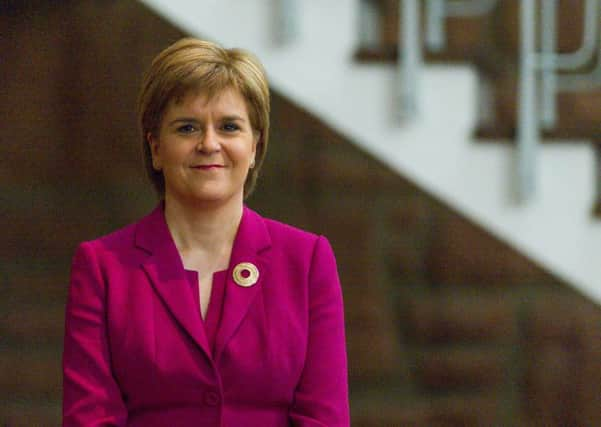Leaders: 2015 shows year is long time in politics


AS is mentioned elsewhere in today’s Perspective pages, the biggest challenge of New Year resolutions is not to identify what they might be, but to keep them. Looking back to The Scotsman’s leader column from Hogmanay last year, it is startling to see how much the landscape has changed in the past 12 months. We called for increased co-operation between political opponents who had been at each other’s throats for two years during the independence referendum. It’s fair to say that this turned out to be wishful thinking, although not for the most obvious reason, that old rivalries die hard.
Our sentiment was based on evidence that the leaders of the SNP and Scottish Labour had both promised to find common ground wherever possible. The electorate decided otherwise, and the SNP’s historic landslide of 56 of the 59 Scottish seats at Westminster in the general election meant Jim Murphy couldn’t find common ground within his own party, never mind with Nicola Sturgeon. Murphy lost his seat in that May rout, and relinquished his position as party leader just weeks later. We can’t be sure Labour’s in-fighting is over, as events south of the Border under new UK party leader Jeremy Corbyn fuel further uncertainty.
Advertisement
Hide AdAdvertisement
Hide AdTwelve months ago, there was a belief that the constitutional question had been settled for the foreseeable future, and that focus could return at last to the practical matter of domestic affairs: a stronger economy, more and higher quality jobs, action on poverty, an effective health service and a better education system. Instead, the constitutional question continued to dominate, although it would be wrong to blame politicians entirely for that. The electorate’s unprecedented endorsement of the SNP showed that for now, Scotland’s status remained a burning issue with a significant number of people, even if the feverish debate over a second referendum has died down in recent months.
Did Scotland make any progress on domestic affairs? Is this country a better place than it was a year ago? The Scottish Government itself admits that there is much work to be done in some of the areas we highlighted last year. Sadly, the prospect of political co-operation is even less likely now as we look ahead, because the countdown to the Holyrood elections in May will begin very soon – probably tomorrow. There will be no quarter asked or given over the next four months, as political trench warfare recommences. We should brace ourselves, because this is not going to be pretty.
As we open the back door tonight to let the old year out, it would be an appropriate time to reflect on where we stood 12 months ago, and where we find ourselves today. If only we knew.
The referendum made 2014 a genuinely historic year for Scotland, and 2015 delivered a political earthquake. It would take a bold individual to predict with utter confidence that we now know where this journey will take us. Only time will tell us the long-term significance of the remarkable events of 2015.
Letwin memo a lesson for leaders
Even three decades on it is shocking to learn of ignorant and racist opinions uttered in advice to the then Prime Minister – even more so since the same man still has the ear of our current leader.
There can be no doubt that the kind of thinking expressed by Tory policy chief Oliver Letwin, even if only in private, contributed to the attitudes that made race relations a powder keg in the 1980s. But would we have been similarly horrified had the remarks been made public at the time?
In truth, probably not to the same extent, because racism was far more rife in 1985 than it is today, although the comments would still have been extraordinarily controversial.
However, it is important to distinguish between what Letwin, now MP for West Dorset, said 30 years ago and his current beliefs.
Advertisement
Hide AdAdvertisement
Hide AdSurely it is inconceivable that he might hold the same unenlightened perspective. He has also been quick to offer an “unreserved” apology and admit publicly that he was wrong.
That should be the end of the matter – for Letwin. But for a Prime Minister hiring advisers it should act as an important lesson.
Letwin, an Old Etonian, was not long out of Cambridge when he became a member of Margaret Thatcher’s policy unit in 1983. Last year we learned that he recommended the Iron Lady back the idea to “use Scotland as a trailblazer for the pure residence charge” - or guinea pigs for the controversial poll tax.
“If the Scottish experiment worked,” he wrote, “it could make a pure residence charge look sensible rather than extreme.”
Here was an unelected individual with precious little experience of the real world, influencing UK policy from the age of 27. A reckless appointment, with harmful consequences.